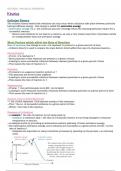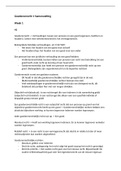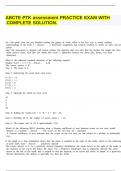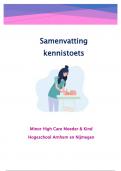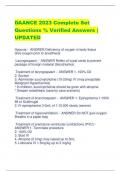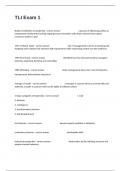Summary
Summary notes for AQA A-Level Chemistry Unit 3.1.5 - Kinetics
- Course
- Institution
- Book
Summary notes for AQA A-Level Chemistry Unit 3.1.5 - Kinetics by an Imperial College London MSci Chemistry graduate. Notes divided into the following sections: Collision Theory, Maxwell-Boltzmann Distribution
[Show more]
